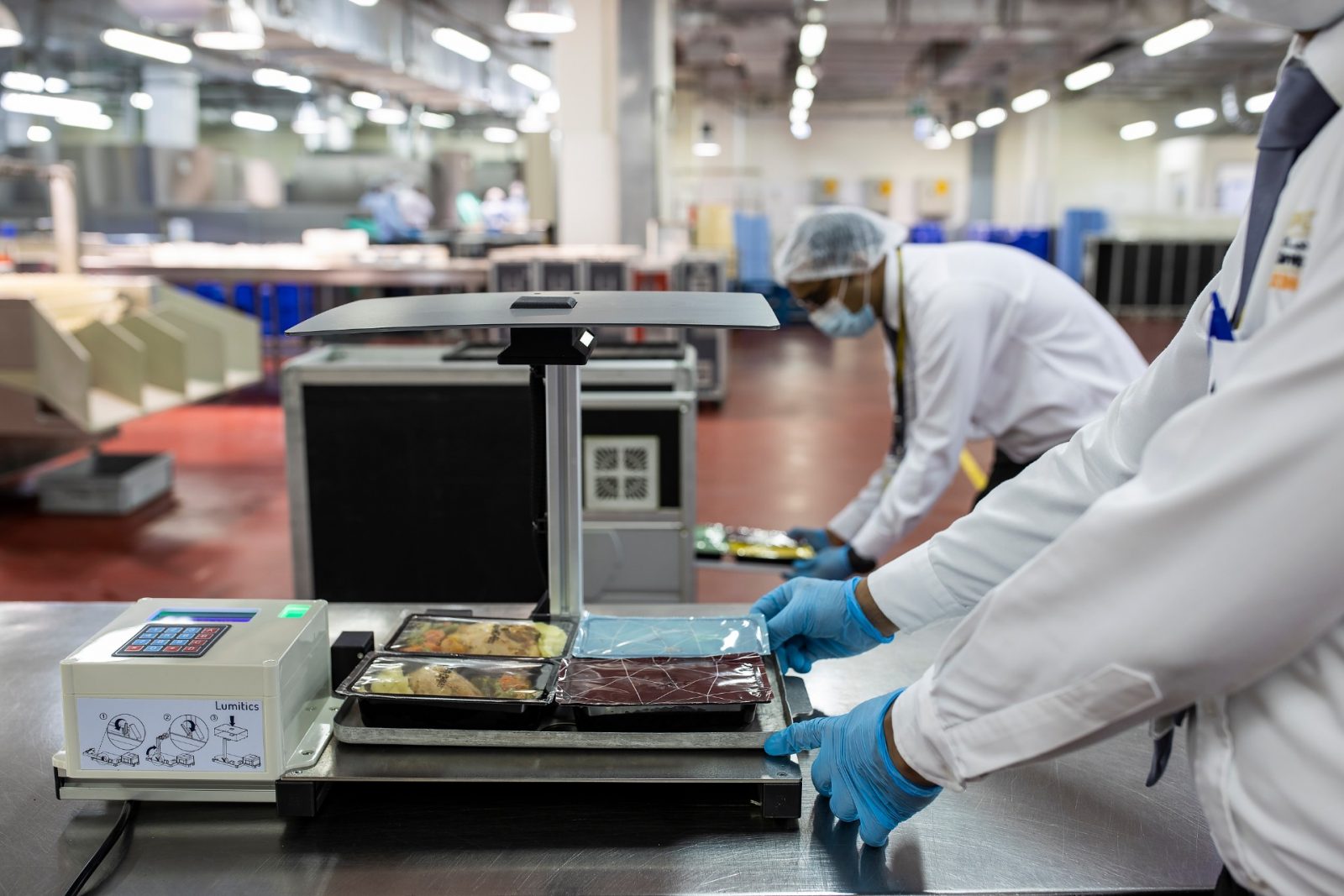
Etihad Airways is to resume trials of a special food waste detection system that utilises artificial intelligence to track unconsumed Economy class meals across Etihad’s flights. After the COVID-19 pandemic stopped the trial in its tracks earlier this year, the airline has once again restarted the programme in collaboration with Singapore startup Lumitics.
According to the food technology company, Etihad should expect to start seeing results within the first few months of operation.
Already in use by several airlines, including Singapore Airlines, the system uses a combination of image recognition and AI to differentiate and identify the types and quantity of unconsumed meals based on the design of the meal foils.
While many airlines already have some sort of system in place to identify and count food waste, these processes are normally slow and labour intensive. The automated system from Lumititcs could, however, provide a return on investment of between 200% – 1000% within the first year of operation according to the company.
“Etihad Airways started the pilot with Lumitics earlier this year before global flying was impacted by COVID-19, and as the airline scales up the flight operations again, it is exciting to restart the project and continue the work that had begun,” explained Etihad’s chief operating officer Mohammad Al Bulooki.
“We believe that this project will have the potential to support the drive to reduce food wastage and, at the same time, improve the guest experience by enabling Etihad to plan inflight catering in a more relevant, effective and efficient way,” Al Bulooki continued.
In the medium to longterm, Etihad should be able to quickly identify unpopular dishes and replace them with menus that appeal more to passengers on a route by route basis. Etihad is also likely to stop loading meals based on the passenger load and instead tailor meal counts to what the Lumitics ‘Insight’ system believes will be the uptake.
For example, Etihad may find that fewer passengers take advantage of complimentary meal offerings on very early morning departures and adjust the loads accordingly.
By 2030, airlines are estimated to produce 10 millions tonnes of waste annually according to Lumetics, with most fresh food needing to be wasted on arrival because of strict health regulations. The trick is to reduce the amount of food being loaded without cutting back so much that some passengers don’t get their first choice.
In the future, airlines are likely to ramp up pre-order options but for the time being, this machine learning process could help reduce the amount of wasted food being produced by airlines while also driving significant cost savings.
Related
Mateusz Maszczynski honed his skills as an international flight attendant at the most prominent airline in the Middle East and has been flying ever since... most recently for a well known European airline. Matt is passionate about the aviation industry and has become an expert in passenger experience and human-centric stories. Always keeping an ear close to the ground, Matt's industry insights, analysis and news coverage is frequently relied upon by some of the biggest names in journalism.







